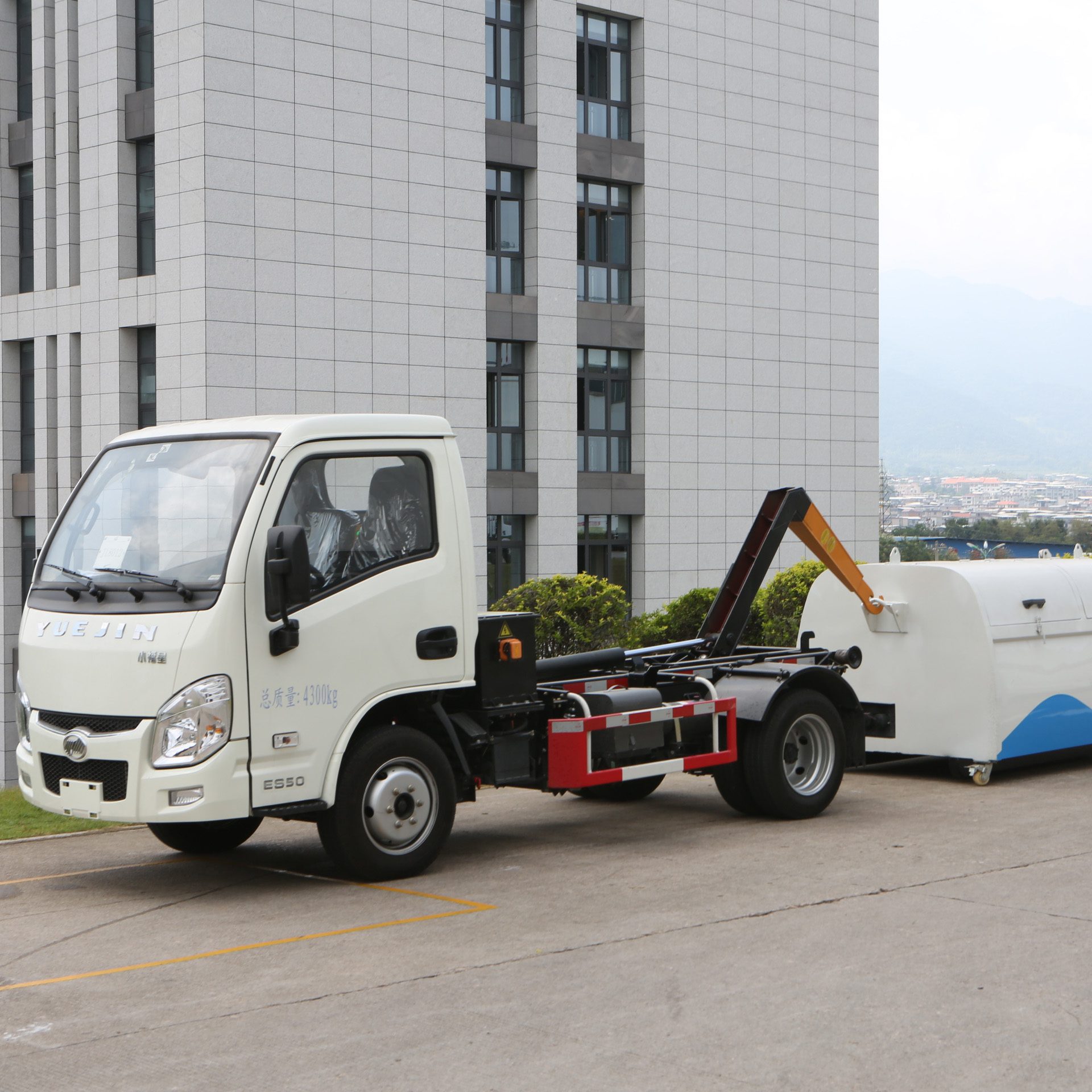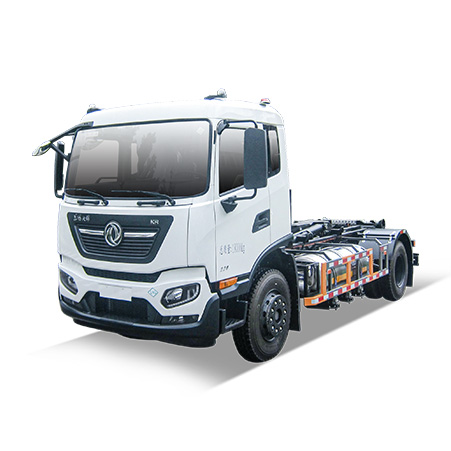Efficient waste management systems are the backbone of modern urban living. They ensure that our cities and towns remain clean, sanitary, and sustainable. Two key types of garbage trucks essential to the waste management industry are hook-lift garbage trucks and roll-off garbage trucks. While both primary transport waste, they operate on distinct mechanisms and are suited to different applications.
What is a Hooklift Garbage Truck?
A hook-lift garbage truck is a versatile vehicle equipped with a hydraulic hook-loading system. This system allows the truck to lift and transport containers of various sizes and shapes. The primary feature of a hook-lift truck is its ability to quickly and efficiently swap out containers, making it ideal for operations that require frequent container changes.

What is a Roll-Off Garbage Truck?
A roll-off garbage truck, on the other hand, is designed to transport large waste containers, often referred to as dumpsters. These trucks use a hydraulic lift system to roll containers on and off the truck bed. Roll-off trucks are commonly seen at construction sites, large commercial establishments, and locations where substantial amounts of waste are generated.
Detailed Examination of Hooklift Garbage Trucks
Mechanism of Operation
The hook lift system operates by extending an arm with a hook at the end, which attaches to a corresponding fixture on the container. The hydraulic system then lifts the container and slides it onto the truck’s bed.
Common Uses and Applications
Hooklift trucks are commonly used for residential and commercial waste removal, recycling operations, and in situations where space constraints require precise maneuverability.
Advantages of Hooklift Garbage Trucks
- Precision in container handling
- Versatility with different container sizes
- Ideal for space-restricted areas
Disadvantages of Hooklift Garbage Trucks
- Generally lower capacity than roll-off trucks
- Slower operation due to the precision required
Detailed Examination of Roll-Off Garbage Trucks

Mechanism of Operation
Roll-off trucks deploy a winch and cable to drag containers onto the truck bed, which is tilted at an angle to facilitate the movement.
Common Uses and Applications
These trucks are often seen at construction sites, demolition projects, and other large-scale waste disposal operations.
Advantages of Roll-Off Garbage Trucks
- Higher capacity for large waste volumes
- A simpler mechanism can handle heavier loads
Disadvantages of Roll-Off Garbage Trucks
- Less precision in container placement
- Requires more space for operation
Differences Between Hooklift Garbage Truck and Roll-Off Garbage Truck

Mechanism and Operation
Hooklift trucks utilize a hydraulic hook system for lifting and placing containers, while roll-off trucks employ a rolling mechanism with cables or hydraulic lifts. This fundamental difference impacts their operational efficiency and suitability for various environments.
Flexibility and Versatility
Hooklift trucks offer greater flexibility, able to handle a variety of container types and sizes. Roll-off trucks, while excellent for large volumes, are limited to specific container sizes and types.
Cost and Maintenance
Hooklift trucks generally involve higher initial costs due to their complex hydraulic systems. Maintenance for these systems can also be more specialized and potentially more expensive. Roll-off trucks, with their simpler mechanisms, often have lower initial costs and simpler maintenance requirements.
Efficiency and Speed
Hooklift trucks excel in environments requiring frequent container changes, providing quick and efficient swaps. Roll-off trucks, while efficiently handling large volumes, can be slower in operations requiring multiple container exchanges.
Applications and Suitability
Hooklift trucks are ideal for municipal waste management, recycling operations, and industrial applications where versatility and quick container changes are essential. Roll-off trucks are better suited for construction sites, large-scale commercial waste management, and situations involving heavy or bulky materials.
Practical Considerations for Choosing Between Hooklift and Roll-Off Trucks
- Operational Environment: Urban settings with limited space may benefit more from hook lift trucks, while roll-off trucks are ideal for spacious, high-volume areas like construction sites.
- Type of Waste: Hooklift trucks are versatile for various waste types, whereas roll-off trucks excel with heavy and bulky waste.
- Budget: Assess the initial cost and long-term maintenance expenses. Hooklift trucks may have higher initial costs but offer more operational flexibility.
- Frequency of Container Changes: If frequent container swaps are necessary, hook lift trucks provide a significant advantage.
FAQs
What are the main industries using hook-lift garbage trucks?
Hooklift garbage trucks are used in municipal waste collection, recycling operations, construction and demolition waste management, and industrial waste transportation.
How does the initial cost of hook-lift garbage trucks compare to roll-off garbage trucks?
Hooklift garbage trucks generally have higher initial costs due to their complex hydraulic systems compared to the simpler mechanism of roll-off garbage trucks.
Can roll-off containers be used with hook-lift garbage trucks?
No, roll-off containers are specifically designed for roll-off trucks and are not compatible with the hook lift system, which uses different mechanisms for loading and unloading.
Which truck system is more suitable for residential waste management?
Hooklift trucks are more suitable for residential waste management due to their versatility and ability to handle a variety of container sizes and types, making them ideal for diverse urban environments.
What are the maintenance requirements for hook lift vs. roll-off garbage trucks?
Hooklift trucks require specialized maintenance for their hydraulic systems, which can be more complex and costly. Roll-off trucks, with simpler cable and winch or hydraulic systems, typically have lower and less specialized maintenance needs.






